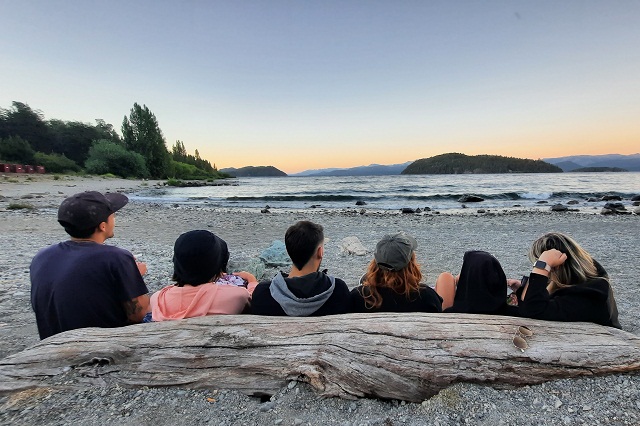
Leisure
It says Aristotle: Once all the techniques were constituted, the sciences were discovered that do not have as their object neither pleasure nor need. They originated in countries where people enjoyed leisure. In life there are moments of inaction, so we need distractions to entertain us. For this reason mathematics was born in Egypt.
Skholè (σχολή) is a Greek word meaning "leisure, free time"; but which is also the root of the word "school" (from the Latin "schola"). In this way, both the notion of teaching or lesson and the word that designates the establishments where instruction is given have their origin in the idea of leisure (that is, contemplation), fun (that is, evasion) and restful occupation (rest). physical, not intellectual). This fact led the French sociologist Pierre Bourdieu (Pascalian Meditations) to give the word skjolè a technical meaning: the leisure of the academic and intellectual profession. According to this author, the skholè is the time free from the pressures of the world that makes possible a free and liberated relationship with respect to those needs. It is a necessary condition for the existence of any intellectual field (from philosophy to the artistic profession). Furthermore, according to the French sociologist, it is the most determining of all the social conditions for the possibility of "pure" reason and the "scholastic" disposition that allows the pressure of economic and social necessity to be suspended. The concept of idle curiosity of the American sociologist and economist Thorstein Veblen (Leisure Class Theory) is an antecedent of the Bourdieusian skholè. That, according to Veblen, guides the search for knowledge without a precise goal and, thus, drives the development of scientific research.
Leisure and friendship complement each other.
In the Mandala of Emotions leisure belongs to the family of virtues.
The good exercise of virtue leads us to happiness, the bad exercise of virtue to the loss of happiness. This depends on the mode, the occasion and the duration of the emotion.
When leisure leads to happiness:
You have to provide leisure to the spirit so that it acts as an energetic breath.
Capacity for leisure implies a universal appetite and a strong sense of personal identity.
A great passion is the privilege of those who have nothing to do.
If possible, even the dead should be made to laugh.
The sweet condition of doing nothing.
Philosophy is a silent dialogue of the soul with itself around being.
Free time allows the creative spirit to flourish.
Artists have always had a need for temporary leisure, in part to clarify what they recently acquired and so that what operates in their soul matures.
Happiness lies in the leisure of the spirit.
Dedicating a few hours a day to serious things enlivens the mind and senses, and makes the time reserved for recreation more pleasant.
Leisure time is the best of all acquisitions.
The leisures of the sage are important matters.
When idleness leads to unhappiness:
Tedium is a disease of the understanding that only happens to the idle.
What good is a good position if in exchange for it you have to give up what makes it desirable, free leisure.
There is a big difference between living in retirement and in idleness.
There are people who, exaggerating to the extreme the whim of making people laugh, show themselves as insipid and annoying buffoons, telling jokes at the expense of any resources.
The funny evil can not give up the pleasure of making fun.
Struggling and working exclusively to have fun is a foolish and childish idea.
Being in leisure for a long time is not rest, it is laziness.
Boredom is the supreme expression of indifference.
The day is excessively long for those who do not know how to appreciate and use it.
The lack of occupation does not mean rest; a totally unoccupied spirit is a spirit full of affliction.
The sentences of this article are distributed throughout the Oracle of the Soul.
Author: Adrian Casasnovas ©